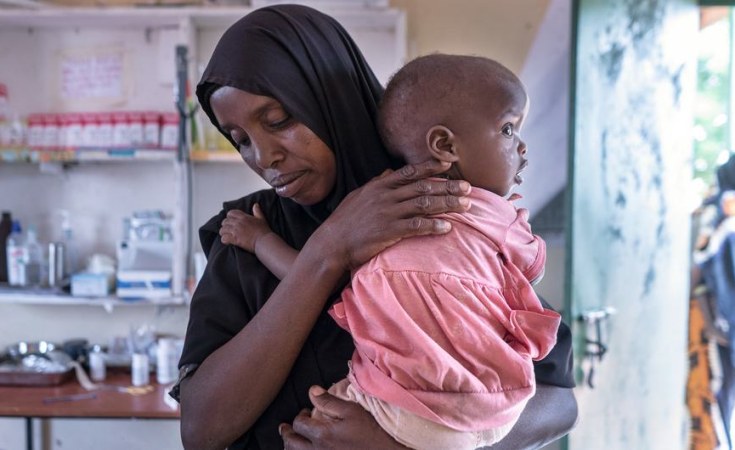Nairobi — Conflict and political unrest in north-east Africa – civil wars, uprisings and attacks by armed insurgents – are fueling a famine, causing displacement, loss of livelihoods, and disrupting of food production and food supply chains.
Nearly one in four children under five in Ethiopia, Somalia, Sudan, South Sudan and parts of Kenya are suffering from chronic malnutrition. As a result, child mortality has increased, and many babies and young children who survive will be stunted for life, unable to ever reach their full mental and physical potential.
Effects of climate change, such as droughts, floods, and extreme temperatures, are worsening the crisis, further disrupting trade and increasing food costs, leaving many people unable to afford to purchase what food is available.
Peace building and mitigating climate change are essential to save millions of lives.
War in Ethiopia has displaced thousands of people, resulting in a scarcity of food and other basic necessities, partly due to blockades of international food assistance. Ongoing conflict in Somalia has forced millions to flee their homes, leaving those who remain in peril. Reports of starvation deaths in post-coup Sudan have emerged in recent months, highlighting a growing food emergency that is spreading from rural to urban areas.

A five-year civil war in South Sudan initially displaced an estimated four million. Whether internally displaced or having fled to refugee camps in neighboring countries, deprived many of food, health care and other services. Insecurity in the region continues to impede humanitarian supply routes.
A recent uptick in inter-communal violence and attacks threatens to destabilize the ongoing South Sudan peace process, and dire humanitarian conditions have reemphasized the importance of improving security and meeting the basic protection needs of civilians. Farmers were unable to plant or harvest crops due to the violence, resulting in nationwide food shortages.
Across the region, both short-term and long-term strategies are required. Governments and humanitarian organizations must act quickly to address the root causes of the conflict and provide desperately needed relief to those affected.
Numerous people's lives have already been lost – a sobering reminder of the need for peace building, conflict resolution, and climate change mitigation. Only with that approach, can we take effective steps to address east Africa’s hunger and malnutrition crisis and ensure that everyone has access to the resources and opportunities needed to survive and build new lives.
Glory Chigogo is a communications specialist who writes commentary on human rights and current affairs issues in Eastern Africa.


